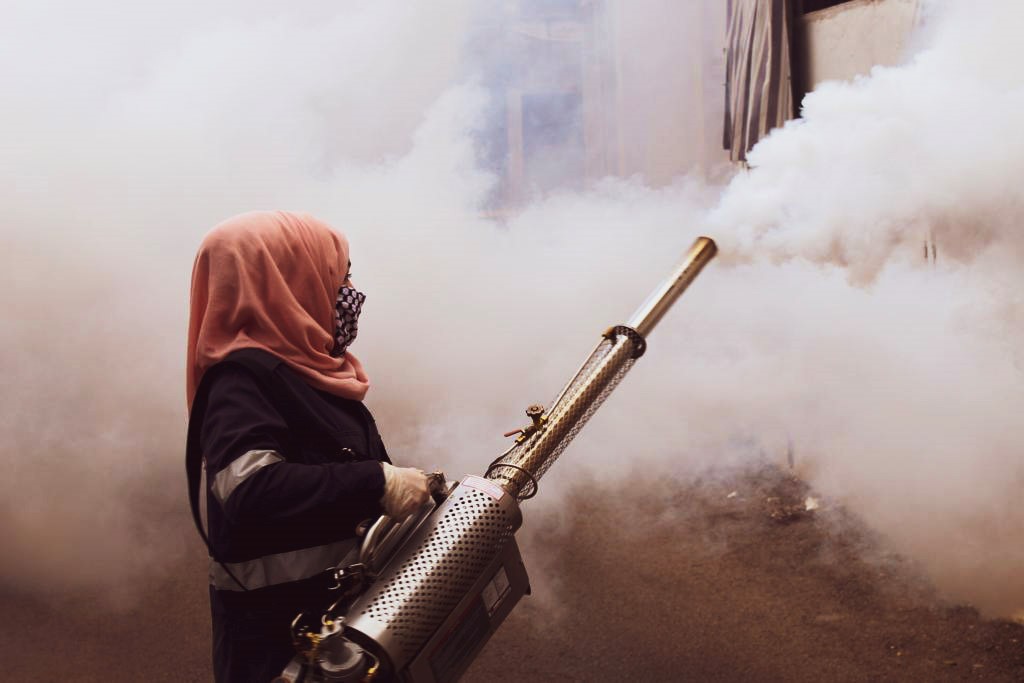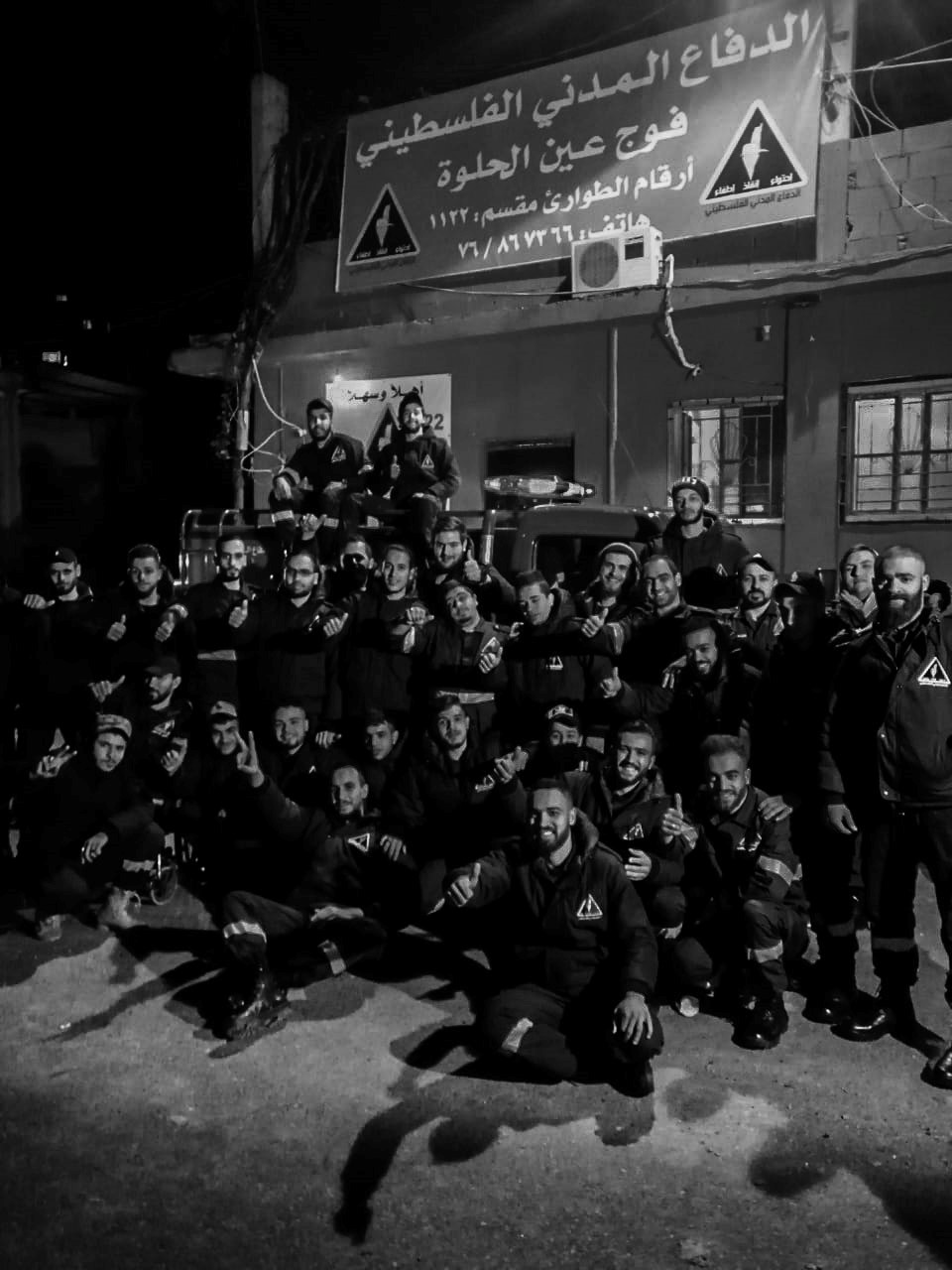Civil defence: From emergency response to intercommunal peacebuilding
Alistair Harris describes how emergency response can serve as a promising conduit to a peaceful coexistence between countries with fragile relationships.

Above: A female member of the Palestinian Civil Defence (PCD) sanitises a refugee camp amid the Covid-19 pandemic. Below right: A PCD group photo. Photos courtesy of ARK. Thumbnail: alchena/123rf
In Lebanon, the collective memories and scars of civil conflict mar Palestinian and Lebanese relations. This is what made the sight of the Palestinian Civil Defence (PCD) – a refugee volunteer emergency response force – responding to the Beirut explosion on August 4, so extraordinary and heartening, helping to shatter long-held prejudices with acts of selflessness and offering hope for the future.
When the explosion in the port ripped through the Lebanese capital, the PCD grabbed their boots and helmets and ran towards the chaos. The volunteer emergency response force was met by utter destruction, with an unknown number of victims buried beneath the rubble. And so, alongside Lebanese first responders and other citizens, the PCD set about digging people from the earth. The rescue of one survivor in particular, Isaam Ata, garnered international attention; the BBC’s International Correspondent Orla Guerin recently visited the ruins of the 100-year-old house where Isaam was rescued after being buried alive for 17 hours.
Isaam’s brother Abdo had died in the collapse. After rescuing Issam, the PCD helped to recover Abdo’s body from the rubble. Grateful for the heroic effort of the PCD, Issam’s family invited the rescuers to attend Abdo’s funeral Mass, where the priest in his eulogy thanked the PCD, noting that it was perhaps God’s will that the Christian family’s Palestinian neighbours from Ayn al-Hilweh camp should come to save Issam. This is a message made particularly powerful, given the legacy of Christian-Palestinian intercommunal violence during Lebanon’s Civil War.
The PCD are not new to emergency response or to assisting their Lebanese hosts. Last October, the group were praised for playing a pivotal role in responding to the worst wildfires Lebanon had seen in decades. Today, with the fires and explosion behind them, the PCD have reset their sights on tackling the Covid-19 public health emergency. In the past four months, the PCD volunteer team’s ranks have swelled with Palestinian youths, responding to the need to sanitise ill-equipped and crowded camps in the hope of slowing the spread of the virus.
In a response to the needs of the most vulnerable, the group recently made use of a grant from the UK Embassy in Lebanon and teamed up with Ahlam Laje’a – a local NGO – to create a tiny workshop inside Shatila camp that produces three-ply face masks that conform to WHO standards. The team are working around the clock to ensure that masks can be given away free to vulnerable Syrian, Iraqi and Palestinian refugees, as well as Lebanese communities whose citizens are unable to afford this basic item of personal protection equipment.

The effort to train and equip the PCD has been supported over the past five years by ARK, an organisation that assists the most vulnerable – in particular, refugees, the displaced and those affected by conflict and instability.
The PCD shows humanity, tenacity and an unquestioning desire to help those around them, regardless of religious, ethnic or any other differentiating characteristic. It is proof that, when provided with agency and opportunity, youths who were previously considered as being vulnerable can channel their energies into positive, community-focused engagement.
Through the mechanism of emergency response, the Palestinian Civil Defence has started to break down even the most deep-rooted prejudices and it has opened-up the space for dialogue and peaceful coexistence, helping intercommunal harmony to take root.
Alistair Harris, 10/11/2020